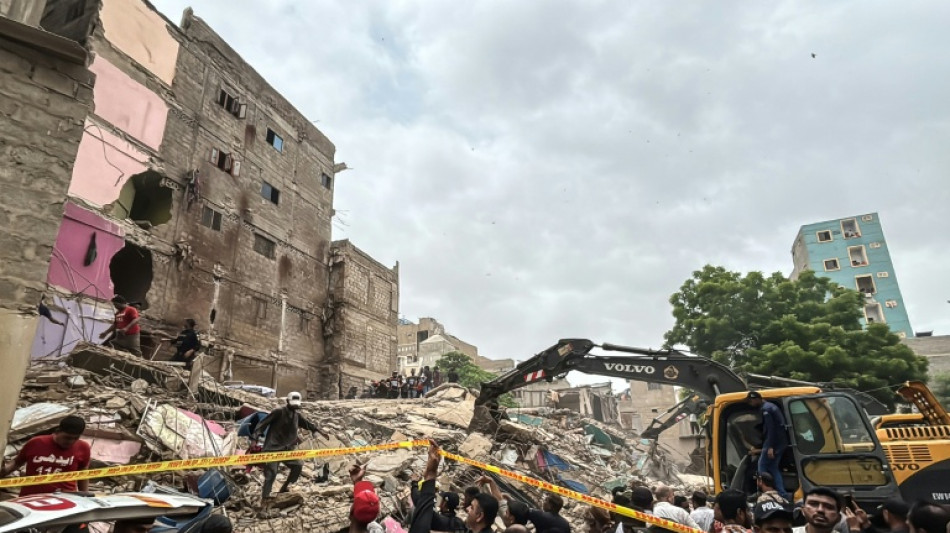
Pakistan building collapse kills 6: police

A five-storey building collapse in Pakistan on Friday killed at least six people and left six injured, police said, with rescuers searching through the rubble for trapped victims.
The incident happened shortly after 10 am (0500 GMT) in the impoverished Lyari neighbourhood of Karachi, which was once plagued by gang violence and considered one of the most dangerous areas in Pakistan.
Shankar Kamho, 30, a resident of the building who was out at the time, said there were around 20 families living inside.
"I got a call from my wife saying the building was cracking and I told her to get out immediately," he told AFP at the scene.
"She went to warn the neighbours, but one woman told her 'this building will stand for at least 10 more years'. Still, my wife took our daughter and left. About 20 minutes later, the building collapsed."
A senior local police official, Arif Aziz, told AFP that six dead bodies have been retrieved and six wounded people rescued.
Up to 100 people had been living in the building, he added.
Saad Edhi, of the Edhi welfare foundation that is part of the rescue operation, told AFP there could be "at least eight to 10 more people still trapped", describing it as a "worn out building".
He also put the death toll at six.
Nearby residents rushed to save their neighbours before rescuers took over to remove the rubble, along with at least five excavators.
The heavy machinery struggled to access the narrow alleys, and police baton-charged residents to clear the way.
In June 2020, at least 18 people were killed when a residential building housing about 40 apartments collapsed in the same area of the city.
Roof and building collapses are common across Pakistan, mainly because of poor safety standards and shoddy construction materials in the South Asian country of more than 240 million people.
But Karachi, home to more than 20 million, is especially notorious for poor construction, illegal extensions, ageing infrastructure, overcrowding, and lax enforcement of building regulations.
F.Richard--PS

 London
London

 Manchester
Manchester
 Glasgow
Glasgow
 Dublin
Dublin
 Belfast
Belfast
 Washington
Washington
 Denver
Denver
 Atlanta
Atlanta
 Dallas
Dallas
 Houston Texas
Houston Texas
 New Orleans
New Orleans
 El Paso
El Paso
 Phoenix
Phoenix
 Los Angeles
Los Angeles



